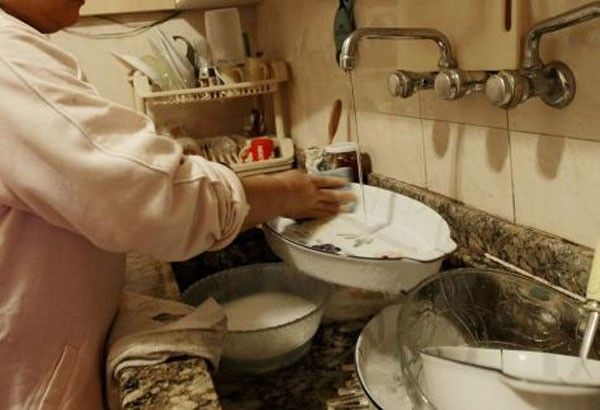Home most dangerous place for women in 2017 — UN agency

MANILA, Philippines — The home is the most dangerous place for women, with a majority of female homicide victims worldwide killed by their partners or family, according to new research published by the United Nations Office on Drugs and Crime (UNODC).
The “Global study on homicide: Gender-related killing of women and girls” by the UNODC for the International Day for the Elimination of Violence against Women showed that around 87,000 women lost their lives in intentional killings around the world in 2017, with 50,000 or 58 percent at the hands of their intimate partners or family members.
“Six women are being killed every hour by people they know,” UNODC said.
“While the vast majority of homicide victims are men, women continue to pay the highest price as a result of gender inequality, discrimination and negative stereotypes. They are also the most likely to be killed by intimate partners and family,” said UNODC executive director Yury Fedotov.
The study found that the global rate was around 1.3 victims per 100,000 female population.
Africa and the Americas are the regions where women are most at risk of being killed by intimate partners or family members.
In Africa, the rate was around 3.1 victims per 100,000 female population while the rate in the Americas was 1.6 victims.
The rate in Oceania was 1.3 and in Asia 0.9, while the lowest rate was found in Europe, with 0.7 victims per 100,000 female population.
The study also found that tangible progress in protecting and saving the lives of female victims of homicides has not been made in recent years, despite legislation and programs developed to eradicate violence against women.
The conclusions highlight the need for effective crime prevention and criminal justice responses to violence against women that promote victim safety and empowerment while ensuring offender accountability.
The study also calls for greater coordination between police and the justice system as well as health and social services and emphasizes the importance of involving men in the solution, including early education.
UN Secretary-General António Guterres said violence against women and girls is not only a fundamental human rights issue but also a “moral affront” against them and a “mark of shame” on all societies.
The UN noted that violence against women and girls is the manifestation of a profound lack of respect – a failure by men to recognize the inherent equality and dignity of women – and that it is tied to the broader issues of power and control in societies.
UN Women, the organization’s entity for gender equality and the empowerment of women, called for an end to the culture of silencing and to put survivors at the center of the response.
According to UN Women, the vast majority of perpetrators of violence against women and girls face no consequences and only a minority of cases are ever reported to the police.
An even smaller percentage result in charges and in only a fraction of those cases is there a conviction.
Phumzile Mlambo-Ngcuka, executive director of UN Women, said laws must recognize that sexual harassment is a form of discrimination against women and a human rights violation.
UN Women also called for legal protections for both formal and informal places of work to ensure that the most vulnerable workers, like those dependent on tips from customers for their income, will have a better chance to speak out against abuse and be heard.
In December 1999, the UN General Assembly designated Nov. 25 as International Day for the Elimination of Violence against Women, inviting governments, international organizations and non-governmental organizations to hold activities designed to raise public awareness on the issue.
The day also commemorates the brutal assassination in 1960 of the three Mirabal sisters, political activists in the Dominican Republic, on orders of Dominican ruler Rafael Trujillo.
- Latest
- Trending































